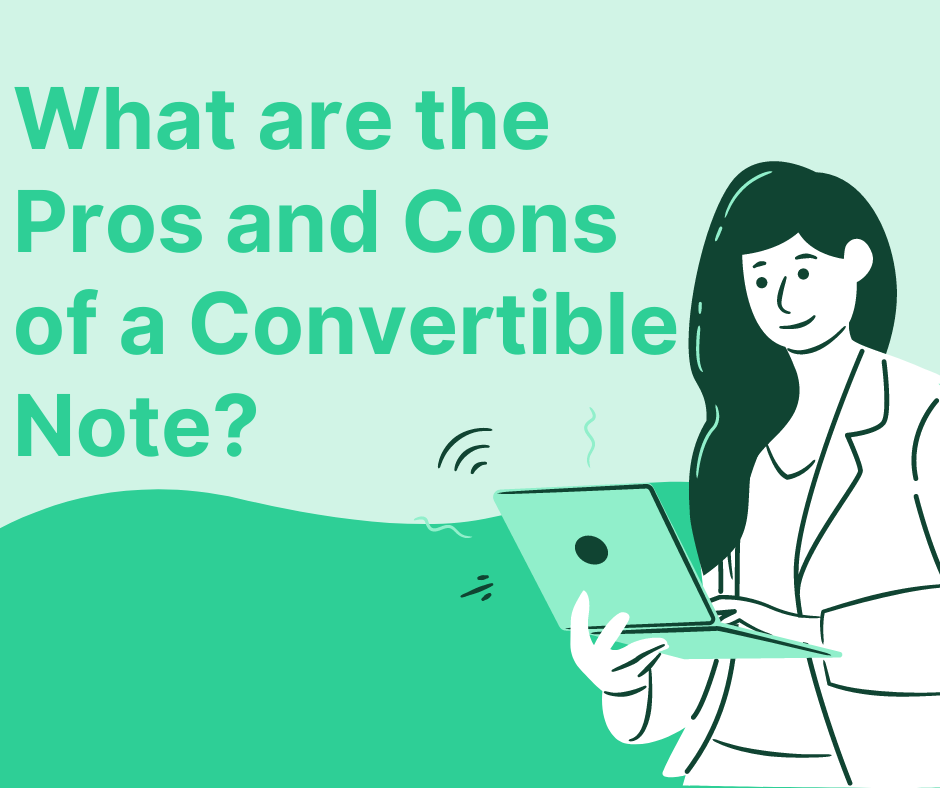
date: 2021-06-14 11:42:17
Most startup companies rely on some form of financings such as funding from angel funds, traditional venture capital, high net worth investors, or friends and family.
At the early stages, most start-ups revert to convertible notes. So, what is a convertible note? A convertible note is an investment vehicle used by seed investors investing in startups who wish to delay performing a valuation for that startup until a later round of funding or milestone. They are structured as a loan. After a specified period, the loan is then converted to equity, usually (but not always) at the valuation set at the next round. As a result of the risk undertaken by the investor due to investing in the company at an early stage, extra clauses are added, which includes (but not limited to) a valuation cap and/or discount.
A convertible note, could also include other preferential terms, which includes veto rights on new funding, M&A activities and liquidation preferences.
In a nutshell, convertible notes are originally structured as a loan (debt instrument), yet it has a clause that allows the principal to convert into an equity investment at a later specified date. So why doesn’t a company simply perform a valuation and agree on a share percentage ownership directly? Because convertible notes allow the investment to be finalized quicker and easier. Additionally, it is performed with much lower legal fees (maybe even with no cost) if you just use a standard template.
Below are some of the terms of a typical convertible note:
Interest: When the convertible note agreement is signed, the invested funds earn a rate of interest like a bank loan. Nevertheless, the interest in not paid in cash, but accrued, meaning that the value owed to the investor increases over time. Sometimes though some companies do not take interest into consideration and consider the note as a non interest bearing loan.
Maturity Date: Convertible notes have a maturity date (i.e. a set date stated in the agreement, in which the funds raised are converted to equity, if a financing round was not performed).
Valuation Cap: Another popular term is the valuation cap, which is basically a hard cap on the valuation that will be established in the next round of financing. Also, this term cap takes effect (plus interest and discount) in case there was no new round of finance prior to a specified maturity date.
Discount: When the time comes and the maturity date or a new round of financing occurs, the investors usually receive a discount percentage on their invested amount, which usually ranges between 10%-30%.
Example
Now, let us see a quick example to sum up the above terms: if an investor invested USD100,000 with an annual interest of 10% and a 20% discount with USD4,000,000 valuation cap. After 18 months, the valuation was USD5,000,000 at the next round of financing. Since the annual interest was 10% and the agreement was actually 18 months ago (1.5 years ago), then the interest plus principle now equates to USD100,000 * 15% (10%*1.5) = USD115,000.
Additionally, since the valuation cap is USD4,000,000, this would be the actual valuation that the old investors would use, instead of the USD5,000,000 valuation.
Also, since there is a 20% discount, the actual valuation to be used will be USD3,2000,000 (i.e. USD4,000,000 * (1-20%)).
Calculating all the above, the old investors would now receive 3.6% (115,000/4,000,000). If the old investors, would have invested in the current round instead, they would have simply received 2.0% (100,000/5,000,000). This huge difference is a result of the terms imposed as a result of the risk undertaken by the early investors at an early stage of the company.
Now, since you now understand the usual terms, the following are the cons and pros of a convertible note:
Pros
Cons
Summary
In summary, the usage of convertible notes and its terms should be negotiated wisely, additionally an internal financial valuation should be performed prior to the agreement in order to know a fair valuation cap to be inserted.
Do you need to value your company to find out what your fair valuation cap should be? Check out Front Figure. It is quicker and more cost effective compared to other traditional methods.